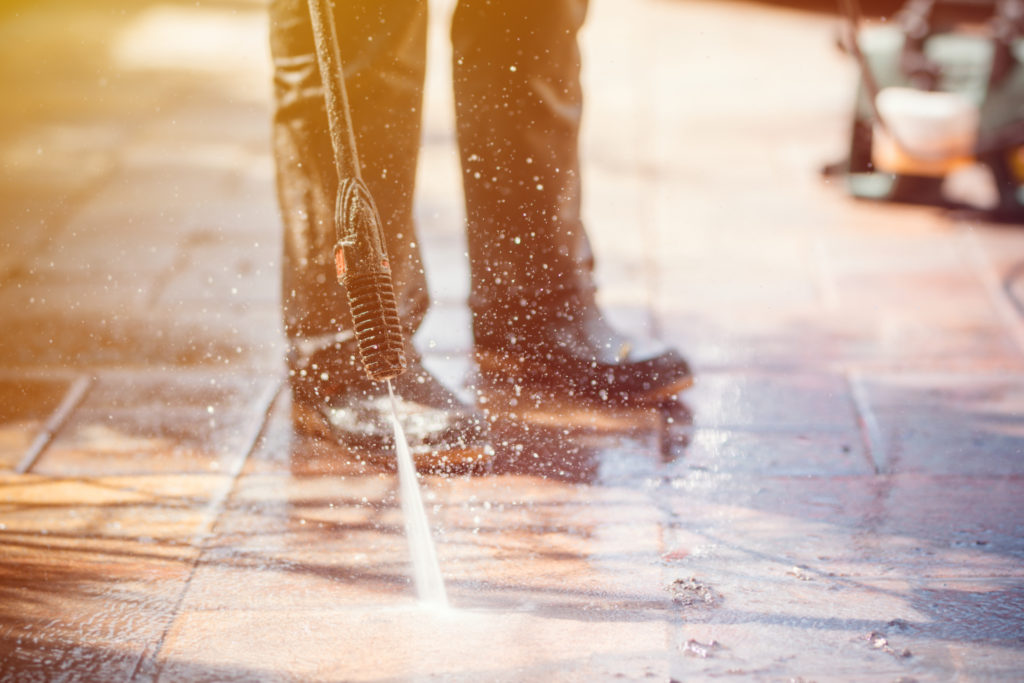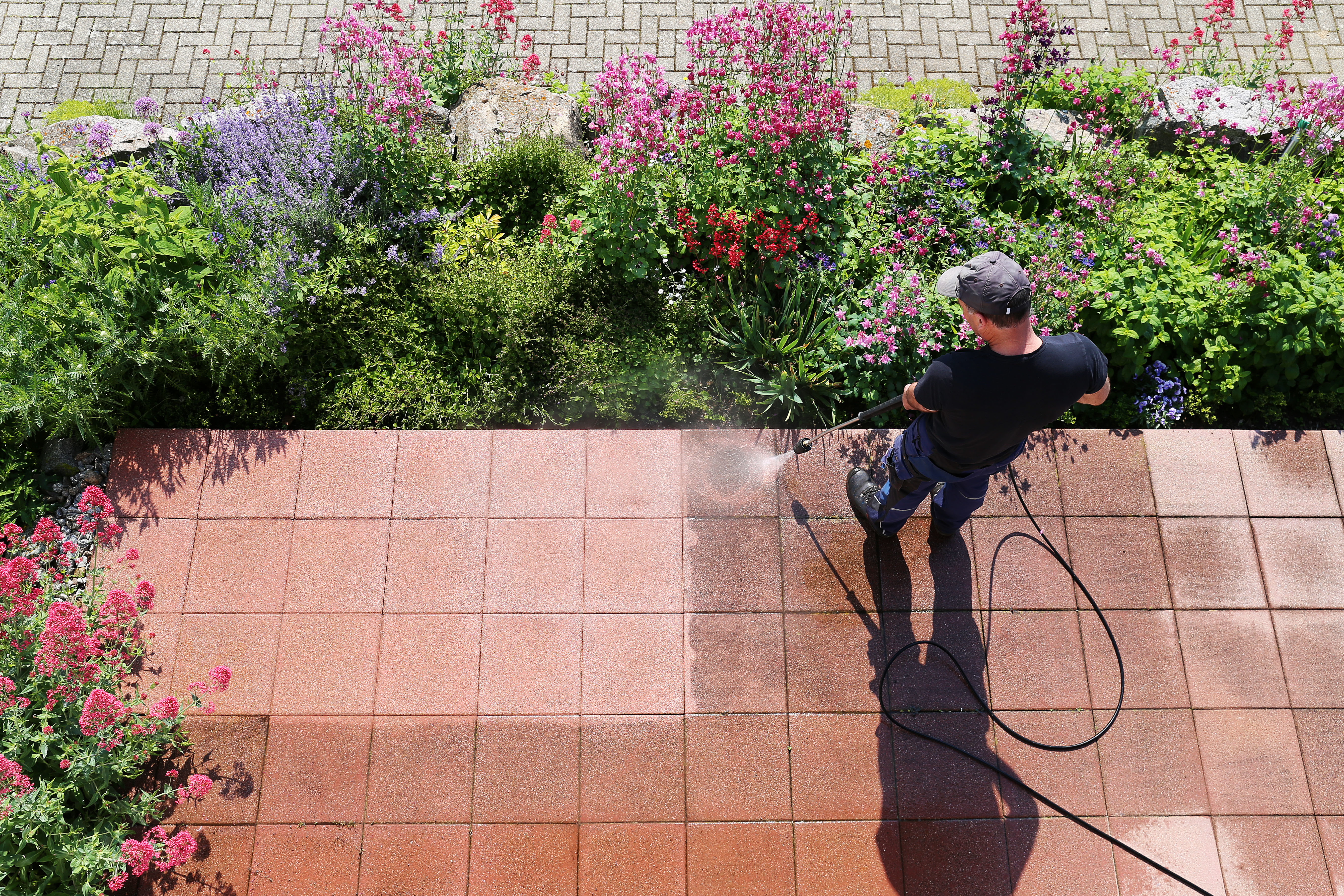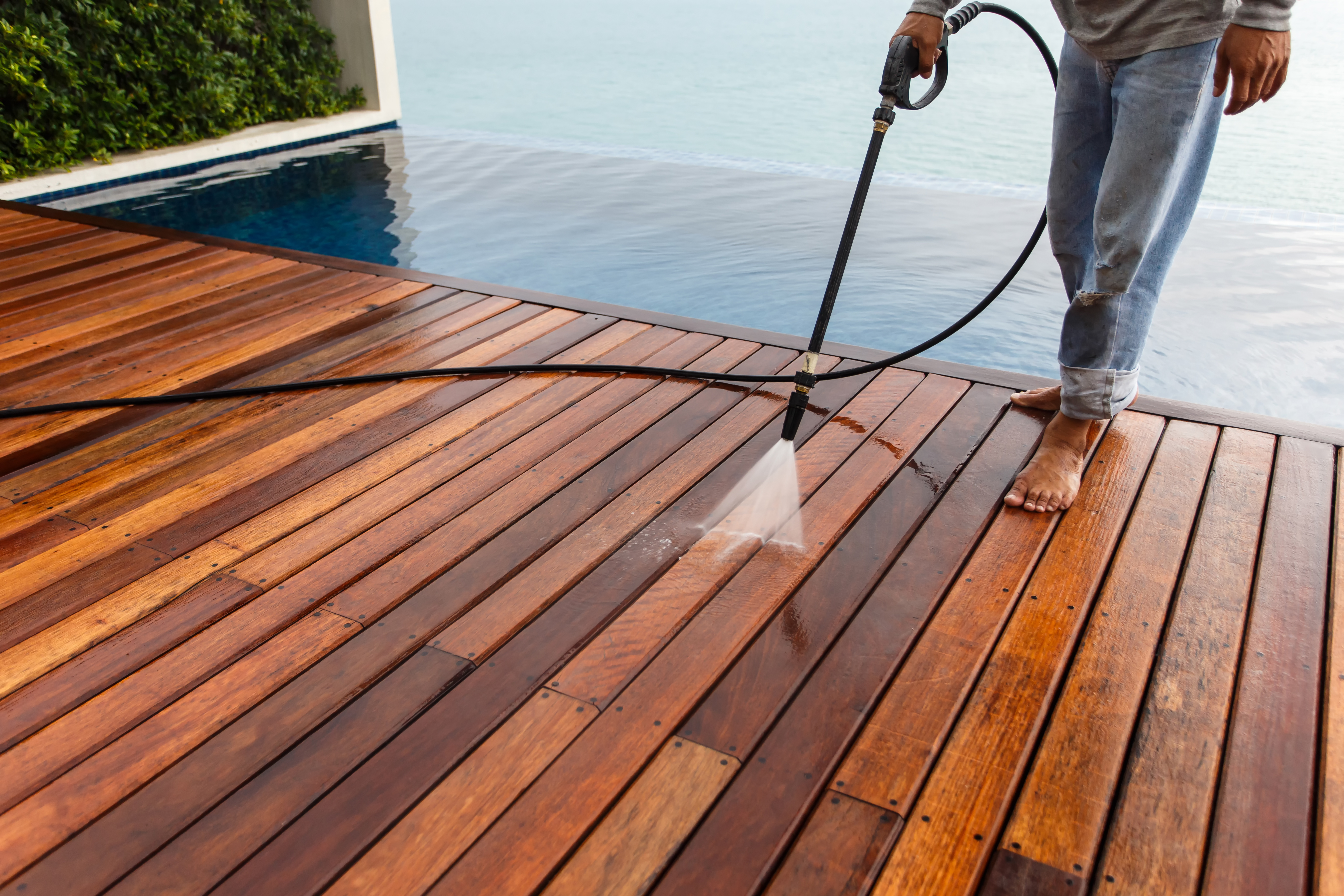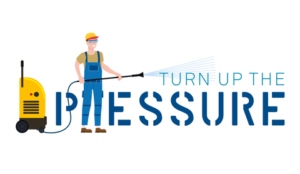
Although you may not think there is that much of a difference between gas and electric pressure washers, there are some key factors that separate them from each other. But is electricity better than gas? Or the other way around?
Electric pressure washers are good in terms of ease of use, size, and safety. Their pressure settings are similar to many gas pressure washers. However, electric pressure washers have less portability and are not meant for heavy-duty jobs.
Let’s take a look at what electric pressure washers have to offer and if they will suit the work you need to do.
Why Electric Pressure Washers Are Better
Electric pressure washers cost less than gas pressure washers, which can contribute to the reason why users will buy them over the gas models. They tend to be smaller than gas pressure washers as well, so they are easy to store. And when you want to use one for cleaning, you don’t have to strain yourself because of the weight.
Aside from the better cost and size, electric pressure washers can do the job just as well as gas pressure washers. Unless you need a lot of psi for heavy-duty cleaning, most of the time, electric models pack the same amount of punch.
Once it is time to use your pressure washer, an electric model can be turned on without a hitch because of its power source. Gas models, on the other hand, need a few minutes to boot up before they can operate.
Gas models also need fuel to work, so if you run out mid-clean and do not have a ready gas supply, it can be a pain to go to the nearest gas pump, refill a can, and then come back to refuel the gas model. With electric pressure washers, all you need to do is plug it in and turn on a switch.
Another bonus? Electric pressure washers can be used for indoor use, which is one of the biggest differences between them and gas pressure washers. The fumes that gas models produce can be hazardous and bad for the users’ health, so although they work just fine outdoors, that is the only place they will be safely used.
You may not need to use a pressure washer indoors, but there are plenty of occasions where you will work in cramped spaces that can trap the fumes from gas models. Or you may just not like the smell of the fumes even when you are outdoors, so you can look to electric pressure washers to spare you from any negative side effects, such as dizziness, headaches, or nausea.
Why Gas Pressure Washers Are Better

As the pricier model between the two, gas pressure washers cost more for a reason. They are great for jobs that require extensive cleaning with high psi. If you have dirt, mold, moss, weeds, or other kinds of grime that need to be deep cleaned off your house, pavement, and various surfaces, a gas model may work better because of its higher range of power.
Gas pressure washers also beat electric pressure washers in terms of portability. Even though electric models are easy to operate, they only go as far as their cord. And if you don’t have a power outlet or an extension cord nearby, you can have problems reaching whatever it is you need to clean.
Gas models, on the other hand, can go wherever you want them to go when you are outdoors. They do not need a power outlet to start up, though they do need fuel. But as long as you have a gas supply prepared before you get to work, you should be fine.
The easy portability for gas models does make them the better choice if you need to get in hard-to-reach places that are not near an electric source.
As mentioned earlier, gas pressure washers have the upper hand for psi. You may not even need to have your pressure washer be powerful enough to reach 2,800 psi and higher—most jobs can be done with much less, especially if you undertake a regular cleaning.
Some surfaces, like brick, pavement, and old siding, can even be harmed with such force. If you do need industrial-level psi, however, then the gas models are the way to go.
There are some mixed opinions on which model is more durable and requires less repair. Electric pressure washers have more plastic pieces that can be prone to breaking, but thanks to their small size and make, they may not need much upkeep for long periods.
Gas pressure washers, on the other hand, do not have as many lightweight plastic pieces and other parts. Because they are meant for more heavy-duty use, they have long-lasting qualities. That being said, it is due to the heavy-duty use that they can break down and need fixing.
Gas pressure washers can also require specific gasoline, oil, or diesel to operate. If you fail to pay attention to the manufacturer’s instructions, then you may contribute to problems or breakage. Electric models, however, simply need a power source.
How To Operate Electric Pressure Washers
Fortunately, electric pressure washers are designed to be easy to use, so it means that you will not have much trouble getting them to work. But despite that, it is always safe to remember a few of these tips to prevent premature damage to your pressure washer.
Do not put bleach or any other unapproved pressure washing detergent into your pressure washer. Although this goes for all models, bleach will eat away at the pump’s seals, which inevitably destroys the pressure washer’s ability to do its job.
If you need to put in detergent that kills mold, weeds or gives an extra clean, make sure that it is safe to use in a pressure washer. But most of the time, water alone can remove any grime from a surface.
Ensure that the outlet your pressure washer is plugged into does not get wet from any of the cleanings. If the outlet gets wet, this could lead to electrical shortages or total failures. Make sure that the direction you are cleaning is away from the outlet and won’t accidentally spray or mist it.
If you want to be even safer, use a heavy-duty outdoor extension cord that will give you extra length to put space between the pressure washer and the outlet.
Some electric models require to be plugged in directly with the manufacturer’s cord and cannot use an extension cord. Read the instructions beforehand.
Have the best hose nozzle for your cleaning job. No matter how much psi your electric pressure washer may or may not put out, how well something gets cleaned also depends on what kind of nozzle tip you use.
Nozzles that are less concentrated work well for softer surfaces, such as decks, pavers, and rooftops, while nozzles that are more concentrated work well for harder surfaces, like siding, concrete, and windowpanes.
Should your electric model not reach the area you wish to clean due to the short cord length or faraway power outlet, consider extending your hose. An extra fifty or hundred feet will only affect the psi at an unnoticeable level, and even though it may be heavier to maneuver, it can help you get to the spots that need cleaning.
Keep the manufacturer’s guide in case you ever need to consult it. Large and small problems can be avoided if you adhere to the product’s official instructions.
When To Use Electric Pressure Washers

Electric pressure washers work well for personal use on everyday surfaces and items. Siding, pavement, decks, grills, cars, and patio furniture are some of the most common things that electric models can take care of.
If you are dismayed that an electric pressure washer cannot reach as high psi as gas pressure washers, rest assured that most cleaning jobs do not require that much force. You likely need something stronger than a garden hose, which electric models offer.
When you need extra help to wash off caked-on dirt, mildew, moss, or even mold, check out what detergents you can mix in the water tank to help you get rid of unwanted grime. The Oxy Solve Total Outdoor Pressure Washer Cleaner is a good, general detergent to assist you in your pressure washing projects.
Electric pressure washers are even strong enough to dislodge and remove weeds that have sprouted up in pavement cracks or alongside your house. Just be sure to use a nozzle that does not accidentally damage your surfaces from concentration.
For those rare indoor jobs, electric pressure washers can be used to clean out areas like garages and basements. You will want to be careful with the nozzle you use and the psi you are cleaning with, but the washing can get out oil stains, old dirt buildup, and more. Best of all, it covers a wide area and cleans in a short amount of time.
Weighing the pros and cons of each type of pressure washer can help you in your final choice of use. Consulting friends and family that may own a pressure washer is always a good idea too.
